Winning the Home Front.
Endless War or Peace and Demobilization?
The Implications of Russia’s Defense Minister Swap
Kirill Titaev, Sergey Filippov, Ivan Grek
July 10, 2024
July 10, 2024
Russia is gearing up for a protracted conflict and seems intent on dragging Europe into an arms race, banking on the notion that economic strength wins wars. Putin is determined to avenge Moscow’s Cold War defeat and seeks a return to the Yalta-Potsdam world order, with China as a guarantor of this new-old system. In this context, it's crucial to understand that for Putin, Ukraine is a battleground in a war against the West, explicitly stating that while Russia conducts a "special military operation" in Ukraine, it is indeed fighting the West.
This message is underscored by the dramatic reshuffling within the Russian government: the replacement of the failed Defense Minister Shoigu with Andrey Belousov, the First Deputy Prime Minister from the economic bloc. Alongside Belousov's appointment, Shoigu's team was also replaced, including notable arrests among the outgoing officials. New deputy ministers were appointed, notably the alleged relative of the President, Anna Tsivileva, and the son of a former Prime Minister, Pavel Fradkov. Shoigu's dismissal was met with schadenfreude within military circles, raising the legitimate question about the new defense minister — who is he?
Belousov’s official biography provides limited insights. He is an economist with extensive experience in economic research and policy development, holding various academic and governmental positions. He served as the Minister of Economic Development from 2012 to 2013 and later as an Assistant to the President on economic issues. In 2020, Belousov was appointed First Deputy Prime Minister of Russia, playing a crucial role in developing socio-economic policies, managing financial markets, and overseeing infrastructure projects.
The emergence of unexpected and unknown personalities has become a hallmark of Putin’s administration. Few knew his second Defense Minister Anatoly Serdyukov, the head of the Presidential Administration Anton Vaino, or other key players until Putin appointed them to top positions. Indeed, Putin himself rose to power in a similar fashion when Yeltsin named him as his successor in 1999.
Analyzing such reshuffles is challenging because traditional Kremlinology tools still heavily rely on examining the order of Soviet leaders on the tribune. However, in the 21st century, open data provides sufficient information about these closed processes to identify trends that explain, and possibly predict, changes in power structures based on data analysis. At The Russia Program at George Washington University, we actively develop this approach and, in this article, illustrate how data helps us understand Belousov's role, his future goals, and the management model Putin is moving towards.
Who is Mr. Belousov?
This message is underscored by the dramatic reshuffling within the Russian government: the replacement of the failed Defense Minister Shoigu with Andrey Belousov, the First Deputy Prime Minister from the economic bloc. Alongside Belousov's appointment, Shoigu's team was also replaced, including notable arrests among the outgoing officials. New deputy ministers were appointed, notably the alleged relative of the President, Anna Tsivileva, and the son of a former Prime Minister, Pavel Fradkov. Shoigu's dismissal was met with schadenfreude within military circles, raising the legitimate question about the new defense minister — who is he?
Belousov’s official biography provides limited insights. He is an economist with extensive experience in economic research and policy development, holding various academic and governmental positions. He served as the Minister of Economic Development from 2012 to 2013 and later as an Assistant to the President on economic issues. In 2020, Belousov was appointed First Deputy Prime Minister of Russia, playing a crucial role in developing socio-economic policies, managing financial markets, and overseeing infrastructure projects.
The emergence of unexpected and unknown personalities has become a hallmark of Putin’s administration. Few knew his second Defense Minister Anatoly Serdyukov, the head of the Presidential Administration Anton Vaino, or other key players until Putin appointed them to top positions. Indeed, Putin himself rose to power in a similar fashion when Yeltsin named him as his successor in 1999.
Analyzing such reshuffles is challenging because traditional Kremlinology tools still heavily rely on examining the order of Soviet leaders on the tribune. However, in the 21st century, open data provides sufficient information about these closed processes to identify trends that explain, and possibly predict, changes in power structures based on data analysis. At The Russia Program at George Washington University, we actively develop this approach and, in this article, illustrate how data helps us understand Belousov's role, his future goals, and the management model Putin is moving towards.
Who is Mr. Belousov?

Andrey Belousov’s profile can be understood not only through his biography but also through his public presence in the state apparatus. To grasp his role in the political and administrative game, we analyzed the contexts in which he appeared or was mentioned in official transcripts published on the Kremlin’s website. His first public appearance at such an event was in 2007, with a more consistent public political career starting in 2012 alongside his ministerial appointment. The most significant leap in his public career occurred in 2020 when he acted as the Minister of Economic Development and served as the acting Prime Minister while Mikhail Mishustin was ill with COVID-19.
The administrative and public portrait of an official crystallizes best during joint appearances with Putin, where every word is meticulously prepared. Since 2012, Belousov has appeared publicly at events with Putin 49 times. All these public statements are linked to the systemic development of technological projects and supporting companies. In his speeches, Belousov stands out from the "old guard" and "friends": he is a technocratic official who advanced his career by solving problems. This is indicated by the cloud of key concepts he used in his speeches before Putin, which shows how the minister wanted to be perceived by the president and understood by others.

In discussions about Russia, two different entities are often confused: technocrats and systemic liberals. The former are ready to tackle any tasks set, remaining within the power structures. The latter additionally share traditional liberal views on the economy. Both work within their sincere beliefs about how the economy functions.
From this perspective, Mr. Belousov is a typical non-liberal technocrat, to whom one might aptly apply adjectives like "sovereign," "centrist," or "statist." He adheres to Keynesian views on economic policy, considers state interests above ideological ones, yet remains a systematic follower of market economy principles, effective as a manager and communicator. Consequently, Belousov must be clearly distinguished from liberal technocrats like Herman Gref and Alexei Kudrin, ideological groups like the Kovalchuks and Patrushev, and understood as part of Prime Minister Mishustin’s management system. Unlike all the above and former Defense Minister Shoigu, Belousov is an official without his "tower" and political ambitions, crucial when mercenary armies have already marched on Moscow once.
From this perspective, Mr. Belousov is a typical non-liberal technocrat, to whom one might aptly apply adjectives like "sovereign," "centrist," or "statist." He adheres to Keynesian views on economic policy, considers state interests above ideological ones, yet remains a systematic follower of market economy principles, effective as a manager and communicator. Consequently, Belousov must be clearly distinguished from liberal technocrats like Herman Gref and Alexei Kudrin, ideological groups like the Kovalchuks and Patrushev, and understood as part of Prime Minister Mishustin’s management system. Unlike all the above and former Defense Minister Shoigu, Belousov is an official without his "tower" and political ambitions, crucial when mercenary armies have already marched on Moscow once.
Open data shows that Andrey Belousov has never been directly associated with the Ministry of Defense, even in matters of economic development of the military-industrial complex (MIC). He participated in only two events related to the MIC and the Ministry of Defense over the years, which remain critical issues for the Russian army:
1. A meeting on the diversification of civilian production by MIC organizations (January 24, 2018);
2. A presentation of organizations in the field of unmanned aerial systems (April 27, 2023).
Development Models
Despite the seemingly revolutionary nature of Belousov's appointment, his new role indicates otherwise — Putin believes the system works and its issues can be patched up with personnel decisions. In Russia, the General Staff is fully subordinate to the Ministry of Defense, establishing a tradition of appointing military personnel as defense ministers. Putin broke this tradition in 2001 and has since appointed individuals who could address current problems without initiating fundamental institutional reforms. Moreover, he has made decisions similar to Belousov's appointment before. In 2008, unexpectedly for everyone, he appointed the unknown entrepreneur and economist Anatoly Serdyukov, who had risen to head the Federal Tax Service, as Defense Minister. After identifying the army's problems during the Georgian campaign, Minister Serdyukov, like Shoigu and Belousov, who had never served in the army, was tasked with carrying out the largest military reform since Soviet times through optimization.
Following the revelation of the Russian army's issues after the failed 2022 blitzkrieg, Putin again refrained from altering the system's relationship model and appointed an outsider to fine-tune its operation through optimizing production relations. The inter-ministerial relationships remain intact. The Ministry of Defense is responsible for logistics, while the General Staff oversees combat operations, formally reporting to the Ministry only on paper. However, Belousov lacks the clout among the military and any expertise, so the General Staff will effectively report directly to the supreme commander-in-chief, Putin, as was the case in 2008.
Putin remains conservative in addressing systemic issues, adhering to Stalin’s principle that "personnel decide everything." Unlike the U.S., which has reformed its institutions by separating the Joint Chiefs of Staff and the Department of Defense into two entities directly reporting to the President, Putin prefers not to touch institutions but to place the military branches in the necessary dependency through personnel decisions.
What Will Belousov Do?
Belousov will fine-tune Putin's model rather than revolutionize it. General expert observations have already set the vector of interpretations for Belousov’s role as a financial strategist at the crossroads of production, economy, and the military. However, beyond observations, we have a significant amount of open data that allows for an objective analysis of the specific tasks facing the new Defense Minister.
On October 21, 2022, Putin established an interdepartmental Coordination Council under the Government of the Russian Federation to ensure the needs of the Armed Forces of the Russian Federation, aimed at organizing the interaction of the army with other ministries under the chairmanship of Russia’s Prime Minister Mishustin, Belousov's direct superior. To understand the issues the new Defense Minister will work on, we analyzed open data on the problems discussed at the Coordination Council meetings. Our analytical model is based on analyzing broken-down texts and their metadata — dates, titles, mentions of specific individuals. We meticulously examined which economic and social issues were on the commission's agenda, which clearly need to be addressed by the new Minister.
1. A meeting on the diversification of civilian production by MIC organizations (January 24, 2018);
2. A presentation of organizations in the field of unmanned aerial systems (April 27, 2023).
Development Models
Despite the seemingly revolutionary nature of Belousov's appointment, his new role indicates otherwise — Putin believes the system works and its issues can be patched up with personnel decisions. In Russia, the General Staff is fully subordinate to the Ministry of Defense, establishing a tradition of appointing military personnel as defense ministers. Putin broke this tradition in 2001 and has since appointed individuals who could address current problems without initiating fundamental institutional reforms. Moreover, he has made decisions similar to Belousov's appointment before. In 2008, unexpectedly for everyone, he appointed the unknown entrepreneur and economist Anatoly Serdyukov, who had risen to head the Federal Tax Service, as Defense Minister. After identifying the army's problems during the Georgian campaign, Minister Serdyukov, like Shoigu and Belousov, who had never served in the army, was tasked with carrying out the largest military reform since Soviet times through optimization.
Following the revelation of the Russian army's issues after the failed 2022 blitzkrieg, Putin again refrained from altering the system's relationship model and appointed an outsider to fine-tune its operation through optimizing production relations. The inter-ministerial relationships remain intact. The Ministry of Defense is responsible for logistics, while the General Staff oversees combat operations, formally reporting to the Ministry only on paper. However, Belousov lacks the clout among the military and any expertise, so the General Staff will effectively report directly to the supreme commander-in-chief, Putin, as was the case in 2008.
Putin remains conservative in addressing systemic issues, adhering to Stalin’s principle that "personnel decide everything." Unlike the U.S., which has reformed its institutions by separating the Joint Chiefs of Staff and the Department of Defense into two entities directly reporting to the President, Putin prefers not to touch institutions but to place the military branches in the necessary dependency through personnel decisions.
What Will Belousov Do?
Belousov will fine-tune Putin's model rather than revolutionize it. General expert observations have already set the vector of interpretations for Belousov’s role as a financial strategist at the crossroads of production, economy, and the military. However, beyond observations, we have a significant amount of open data that allows for an objective analysis of the specific tasks facing the new Defense Minister.
On October 21, 2022, Putin established an interdepartmental Coordination Council under the Government of the Russian Federation to ensure the needs of the Armed Forces of the Russian Federation, aimed at organizing the interaction of the army with other ministries under the chairmanship of Russia’s Prime Minister Mishustin, Belousov's direct superior. To understand the issues the new Defense Minister will work on, we analyzed open data on the problems discussed at the Coordination Council meetings. Our analytical model is based on analyzing broken-down texts and their metadata — dates, titles, mentions of specific individuals. We meticulously examined which economic and social issues were on the commission's agenda, which clearly need to be addressed by the new Minister.

The graph illustrates the issues raised by the Council and how quickly they are resolved. For example, after the September 21, 2022, mobilization, the main issue for the state was soldier supply, resolved by March 2023. Permanent topics include production and the defense-industrial complex, which, however, are not considered crisis issues, unlike coordination and interdepartmental interaction problems.
This traditional problem of the Russian army, rooted in Soviet times, apparently falls to the new Defense Minister to solve, and he has a significant amount of resources to do so. Due to past connections, shared economic views, and basic skills, he is likely to find effective communication channels with economic ministries, state and non-state enterprises. It’s worth noting that Belousov’s skills also suit solving the second most significant cluster of problems: production, supply, and budget financing.
This traditional problem of the Russian army, rooted in Soviet times, apparently falls to the new Defense Minister to solve, and he has a significant amount of resources to do so. Due to past connections, shared economic views, and basic skills, he is likely to find effective communication channels with economic ministries, state and non-state enterprises. It’s worth noting that Belousov’s skills also suit solving the second most significant cluster of problems: production, supply, and budget financing.
Data shows a particular relationship between Belousov and the Coordination Council: he never attended a meeting. Of Mishustin’s nine Deputy Prime Ministers, four — Abramchenko, Overchuk, Trutnev, and Belousov — never participated in the Council’s meetings chaired by their boss. These four Deputy Prime Ministers have no controlled ministries and their task is to solve general problems, not coordinate the work of specific ministries. This is an old administrative logic dating back to the 1930s USSR, where Deputy Prime Minister Beria oversaw the NKVD, OGPU, and MINKOMZOKH, while Deputy Prime Minister Suslov did not oversee specific ministries but controlled ideology in each. The four aforementioned Deputy Prime Ministers are tasked with solving general interdepartmental issues, while Belousov's expertise is aimed precisely at the main departmental problem identified by the Council’s meeting analysis.

Why has Belousov, a subject-matter expert, never attended a meeting? Because Deputy Prime Ministers without ministerial portfolios do not participate in such Councils, and inviting them outside the regulations violates internal administrative logic. Without the authority to interfere in interdepartmental affairs, Deputy Prime Ministers without ministerial portfolios have nothing to do at such Councils. Adding managerial functions to Deputy Prime Ministers might seem a solution, but in the conservative Russian administrative hierarchy, such a change could take years or may not happen at all. Avoiding institutional rigidity, Putin made another radical personnel decision, bypassing established institutions and placing the necessary person in a position with enough authority to solve problems.
Conclusion
Objective data shows the following. Russia has divided the functions of the Ministry of Defense (war logistics) and combat operations (General Staff). The new minister has significant experience and substantial administrative weight, though not public. Key issues include the defense-industrial complex broadly (including supply and food), current coordination organization, and social issues for active and dismissed military personnel. These tasks align with the new minister’s experience, connections, and skills. The effectiveness of military strategy and tactics remains uncertain, but the efficiency of logistics, equipment supply, and the appeal of military service are likely to improve in the medium term.
The failure of the Istanbul agreements in March 2022 marked the end of Putin’s blitzkrieg failure in Ukraine: instead of repeating the 1968 Czechoslovak scenario, Putin plunged Russia into a deep crisis. However, economic and sociopolitical indicators unequivocally show that Russia has moved out of crisis management mode and established a wartime management system. The Kremlin has taken the calls for a Perestroika 2.0 to heart, forging a system designed to fulfill Putin’s mission of restoring the Cold War-era world order but within a multipolar world led by the U.S., Russia, and China. He does this conservatively, hiring cadres who can make the cumbersome system work without overhauling its mechanisms. While Chairman Xi seeks to associate his name with changes by implementing 311 reforms simultaneously, Putin avoids significant changes as much as possible, plugging problems with people.
Although Putin aimed to achieve this through a high-efficiency operation to capture Kyiv in three days, he ended up as a bouncer for the interests of the Global South, for which he needs a serious geopolitical club in the form of an army capable of working in the long term and imposing its will. The Western coalition turned out weaker than many thought at the start of the 2022 campaign: Europe cannot quickly switch to a war footing, and its primary military needs are covered by the U.S., which may abandon this policy if Trump comes to power. If Putin successfully fine-tunes the mechanisms of long-term militarization, Europe will either have to come to terms with him or sharply increase its military spending, which it hasn't done for decades, investing in social policy while the U.S. covered its security needs. Will European voters, who, according to polls, have no desire to participate in war or even defend themselves, like this?
Objective data shows the following. Russia has divided the functions of the Ministry of Defense (war logistics) and combat operations (General Staff). The new minister has significant experience and substantial administrative weight, though not public. Key issues include the defense-industrial complex broadly (including supply and food), current coordination organization, and social issues for active and dismissed military personnel. These tasks align with the new minister’s experience, connections, and skills. The effectiveness of military strategy and tactics remains uncertain, but the efficiency of logistics, equipment supply, and the appeal of military service are likely to improve in the medium term.
The failure of the Istanbul agreements in March 2022 marked the end of Putin’s blitzkrieg failure in Ukraine: instead of repeating the 1968 Czechoslovak scenario, Putin plunged Russia into a deep crisis. However, economic and sociopolitical indicators unequivocally show that Russia has moved out of crisis management mode and established a wartime management system. The Kremlin has taken the calls for a Perestroika 2.0 to heart, forging a system designed to fulfill Putin’s mission of restoring the Cold War-era world order but within a multipolar world led by the U.S., Russia, and China. He does this conservatively, hiring cadres who can make the cumbersome system work without overhauling its mechanisms. While Chairman Xi seeks to associate his name with changes by implementing 311 reforms simultaneously, Putin avoids significant changes as much as possible, plugging problems with people.
Although Putin aimed to achieve this through a high-efficiency operation to capture Kyiv in three days, he ended up as a bouncer for the interests of the Global South, for which he needs a serious geopolitical club in the form of an army capable of working in the long term and imposing its will. The Western coalition turned out weaker than many thought at the start of the 2022 campaign: Europe cannot quickly switch to a war footing, and its primary military needs are covered by the U.S., which may abandon this policy if Trump comes to power. If Putin successfully fine-tunes the mechanisms of long-term militarization, Europe will either have to come to terms with him or sharply increase its military spending, which it hasn't done for decades, investing in social policy while the U.S. covered its security needs. Will European voters, who, according to polls, have no desire to participate in war or even defend themselves, like this?
- Kirill TitaevYale University
- Ivan GrekThe Russia Program at GW
- Sergey FilippovThe Russia Program at GW
